The course is suitable for:
a) Those already trained in conventional medicine (e.g. doctors, nurses, etc.)
b) Those who are graduates of a recognised body-based complementary healthcare / beauty therapy course which must include in-depth anatomy and physiology.
c) Applicants without prior experience in healthcare can still enrol, but will have to complete a course in Anatomy and Physiology prior to starting.
Additional required studies for (c) may include an introductory course in NATUROPATHIC NUTRITION and/or training in a body-based therapy (e.g. Massage, Reflexology, Yoga, Osteopathy, Bowen therapy etc.)
Copies of certified evidence of A&P to Level 3 minimum, Emergency First Aid at Work and suitable insurance (on which we will advise) must be sought before the start of the course.
Applicants must also be familiar with Colonic Hydrotherapy, and have received a treatment.
Course content includes:
- History and philosophy of Colonic Irrigation
- Basic principles of hydrotherapy
- The naturopathic principles and the mind-body connection
- Various cleanses, fasts and detoxification with their associated physiology
- Contra-indications and red flags for Colonic Hydrotherapy
- Specialist Anatomy and Physiology of the Colon and Gastro-Intestinal Tract
- Autonomic Nervous System and Enteric Nervous System
- The Gut-Brain-Immune Axis
- Digestion, absorption, enzymes and pH control
- Basic GI tract pathology and clinical features of GI diseases
- Actions and side-effects of the major classes of drugs on GI function
- Interactions between foods, drugs and (herbal) supplements
- Clinical nutrition related to Constipation, Bloating, Toxicity, Parasites & other infections, Candida, SIBO
- Client-handling and improving communication for better compliance and healthier diet/lifestyle
- Herbal Implants, Visceral Massage, Colonic Reflexes, Acupuncture Points, Probiotic Post-Colonic Implants
- Stool interpretation and laboratory testing
- Sterilisation and safe hygiene using disposable speculums and tubing
- Room layout, equipment and regulations
- Ethics and professional practice requirements
- Support and guidelines on obtaining insurance
- Record keeping

